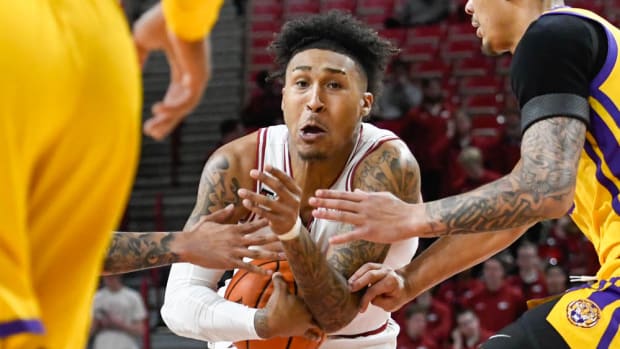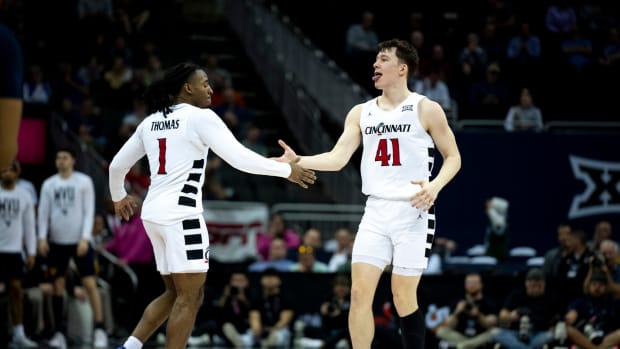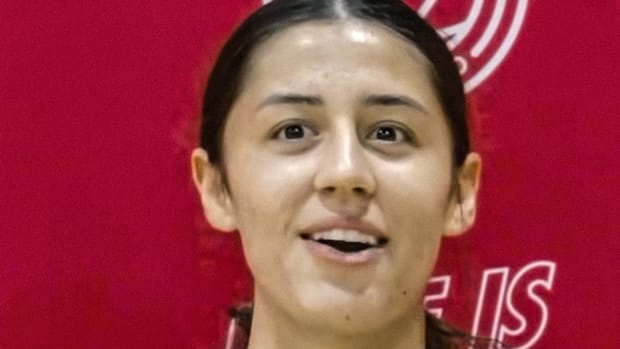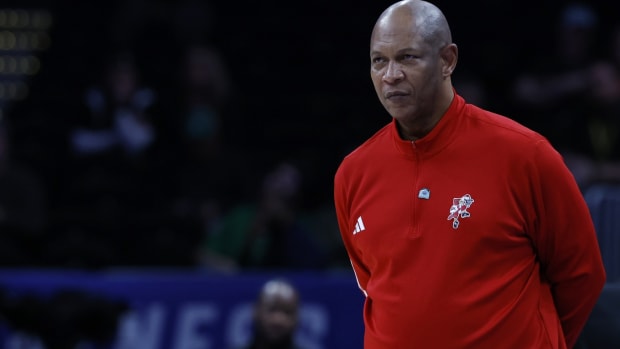Officials Will Review All Shots at the Buzzer During NCAA Tournament
Changes are coming to the NCAA tournament this spring concerning buzzer-beating shots being reviewed, according to ESPN's David Payne Purdum.
Purdum reported on Thursday that officials "will review all shots made at the buzzer, as necessary, in the interest of accuracy of score and team and player statistics and even if outcome of the game isn't the officials' call."
On Friday, the NCAA addressed the comments and said that a committee will help review NCAA policies that might be affected in the regular season or postseason.
"To correct our previous comments, an NCAA membership ad hoc committee examining sports wagering will work with appropriate standing membership committees, specifically playing rules, to direct review of all NCAA policies that might be impacted by the new gambling environment in regular season and postseason play, including reviews of last-second shots," the NCAA said. "This action is in keeping with our commitment to maintaining the integrity of the games."
The decision comes after recent games where players' late shots that came after the clock expired ultimately determined whether or not the spread was covered. During Wednesday night's Villanova-Creighton game, in which Villanova was favored by nine, Bluejays point guard Kaleb Joseph's two-point field goal at the end of overtime left his hands after the clock hit zero but still counted. Creighton covered in a 66–59 Villanova win, but the final score should have been a push.
A similar situation occurred during Monday night's Iowa State–Oklahoma game. The Sooners' Jamal Bieniemy hit a running three-pointer as the buzzer sounded and cut Iowa State’s winning margin to 75–74, which allowed Oklahoma to cover the 2.5-point spread. Many people were upset that the play wasn't reviewed.
The NCAA rulebook says officials are not required to review buzzer beaters unless it affects the game's outcome during the regular season. Conferences control games during the regular season and the NCAA just oversees them.




